Rosalie Kramm On Women Referees In Soccer
Rosalie Kramm has been a member of the San Diego soccer community for over 40 years. One of the first female referees in America — from the beginning as a young teenage youth soccer referee in El Cajon, to being a referee in men’s professional soccer and now, as the owner of the The Futbol Factory — Kramm’s talent, perseverance and passion for the beautiful game has known no limits.
Kramm is proud to have been a soccer referees in the original NASL — and expertly determining important calls surrounded by a sea of men — but this rise in a man’s world came with a price.
Soccer News: The life of a referee is regarded as an occupation that consists of demands like any regular day job. Referees must be on their A-game in order to provide a fair and honest days work.
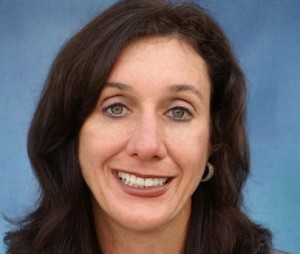
However, the perception of ‘fair’ is a term that can be loosely affiliated with an official who is in the center or running the sidelines of a highly competitive soccer match. Whether the soccer match is a youth soccer game or a professional one, spectators, players and coaches all have opinions and try to pressure the referees.
Referees are not on the field to please anyone. Referees are there to provide an impartial ruling on the plays — but, often there are disputes. Mental toughness is a requisite for the job.
This is not a glamorous life — referees rarely become famous, even rarer are they recognized for performing a good job but without them players could not play the beautiful game.
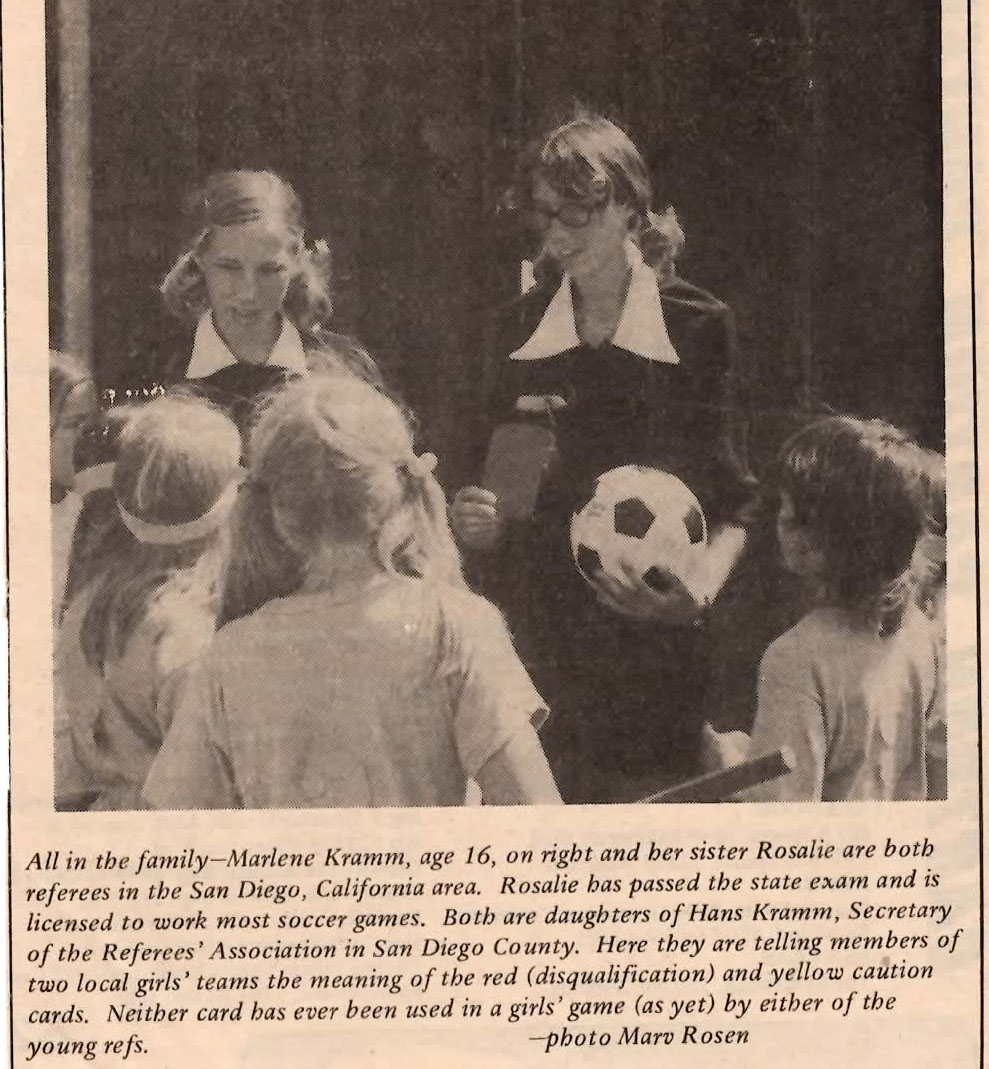
The life of a female referee is a story that goes unheard on the soccer field of America. In fact, it is safe to say that life is tougher for a female referee while on the pitch of a male game.
Rosalie Kramm story is a quiet fairytale of triumphant and determined success.
Kramm began officiating during her teenage years in the San Diego region because she there was simply no soccer for her to play — girls soccer was just not that organized then, — and this is really not that long ago.
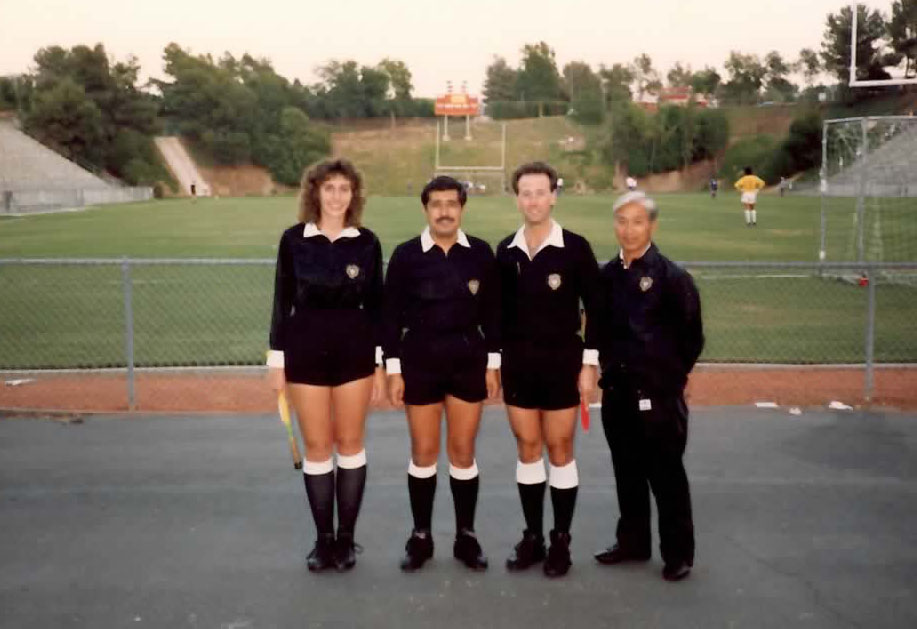
Inspired by her father, who also served as a referee, Kramm was always on the pitch with her brothers who played recreational youth soccer. After being trained as a referee, Kramm became a constant figure on the sidelines — and clocked in an enormous amount of hours — and earned enough money to save $35,000.
Kramm was one of the first female soccer referees to run the sidelines of the original North American Soccer League (NASL) and still remains an inspiration in the soccer community today.
SoccerToday spoke with Kramm on her experience in the game and the challenges of being a female in a ‘perceived’ male profession.
Diane Scavuzzo: When did you first start refereeing?
Rosalie Kramm: I started refereeing at 13 years old — I first refereed AYSO games in La Mesa. I was too young to drive, so I rode my bike every Saturday to the field. I started at 8:30 or 9:00 and refereed 4 or 5 little kids games, and then would ride home.
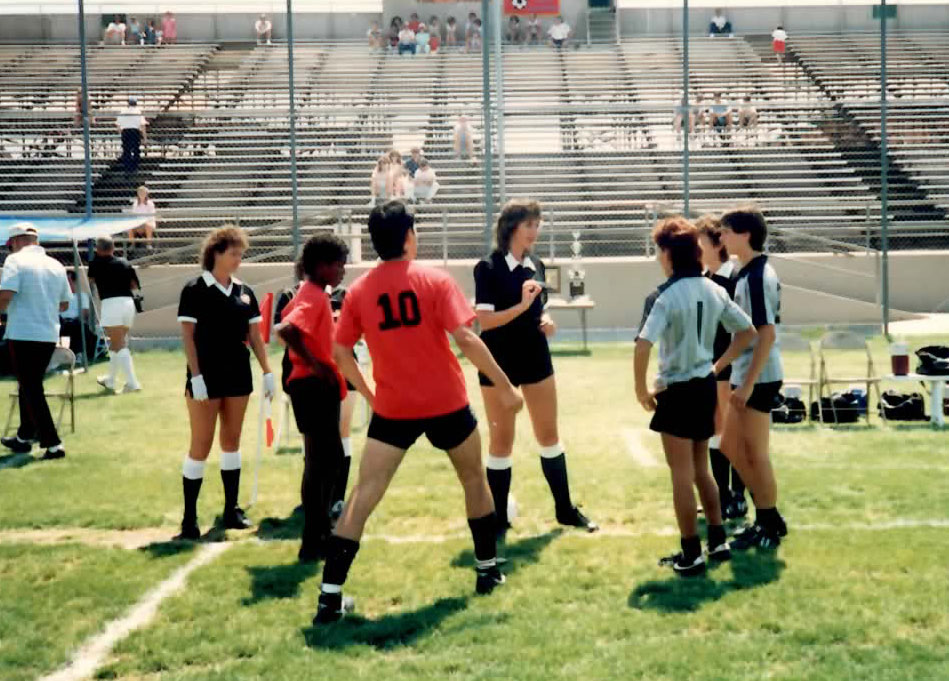
Diane Scavuzzo: How often were you refereeing games?
As I got older, I started refereeing the higher divisions of soccer. When I was 16 years old, I became an AR for men’s leagues and then refereed men and women leagues on Sundays.
I refereed high school, college, and some NCAA games, NASL, MISL, as well as professional friendlies like the Hearts of Scotland vs. Sockers.
By the time I got out of high school, I had $35,000 in the bank from refereeing soccer games.
Diane Scavuzzo: What inspired you to become a referee?
Rosalie Kramm: My father was a referee. He started the San Diego County Referees Association in approximately 1964. I grew up on a soccer field while he refereed.
I loved soccer, but girls didn’t play organized soccer in La Mesa in the ‘60s.
My dad thought as long as I was always on a soccer field anyway, I might as well start refereeing and make some money. He had my older sister referee as well, but she hated it.
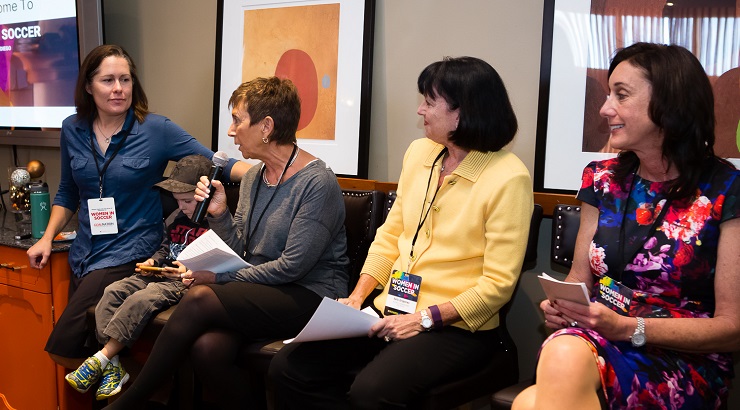
Diane Scavuzzo: What about you surprises people the most?
Rosalie Kramm: I think what surprises people about me is the fact that I was a soccer referee.
I was in USA Today, Sports Illustrated, and in game footage on ESPN.
Diane Scavuzzo: What inspires you?
Rosalie Kramm: What inspires me today is watching people who go through adversity and hardship, and use what they had to learn to become stronger, smarter, and be empathetic.
For example, Richard Branson talks about being dyslexic in school, being told he wasn’t smart and would not be successful. He felt sad, but decided he would do things his way, not let others tell him who he was going to be, and became incredibly successful.
I truly believe in the saying, “What doesn’t kill you will make you stronger.”
Diane Scavuzzo: As one of the very first female referees, what was the hardest part of the journey?
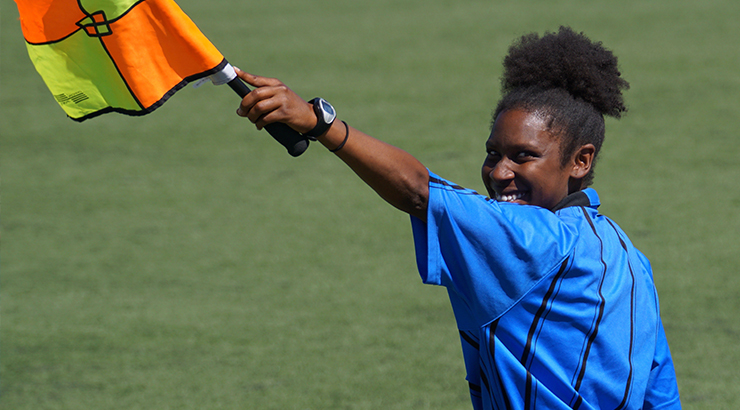
Rosalie Kramm: As a female referee, one of the most difficult parts of the journey was not knowing how to deal with the verbal abuse that was thrown at me because I was a girl.
When I started refereeing, I was a nice, sweet 13 year old girl — not trying to prove anything– and always wanting to do a good job. I really tried hard.
It was confusing to have adults yelling obscenities, making crude remarks.
People were upset the moment I walked on the field wearing my referee uniform — because I was a girl.
There were no role models for me to ask how to deal with these people. My dad did come to almost all of my games and would tell people to be quiet, but he also would expect me to stand up for myself.
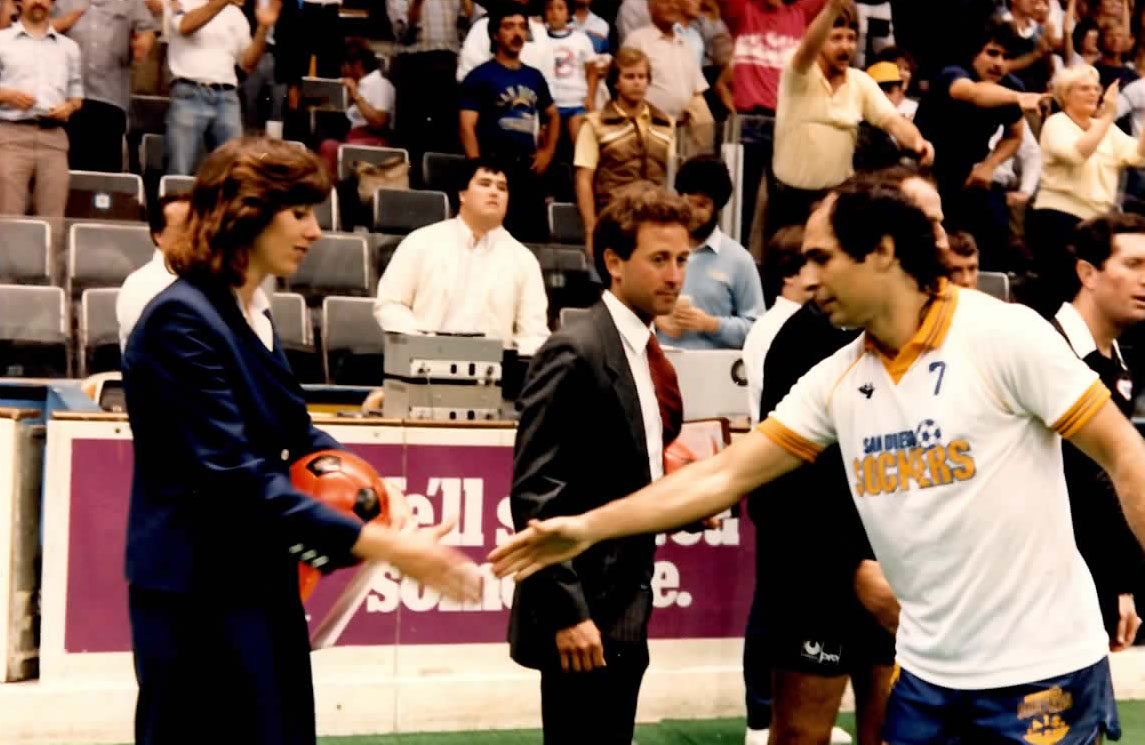
I would get huge lectures in the car on the way home from a game with him asking why I didn’t throw that guy out or give the coach a yellow card when they said inappropriate things. My dad taught me to stop the game and force parents to sit in the car, or the game wouldn’t go forward.
People would get so mad at me. One man said, “You can’t make me sit in the car. This is America.”
I replied, “You get in the car or the game is over.” I would be scared, and sometimes it was hard to face particular teams or coaches because I knew they would be really mean. But my mantra became, “Do it anyway.”

Diane Scavuzzo: What do you think is the most challenging or infuriating thing about being a women referee?
Rosalie Kramm: The most infuriating thing about being a female referee is when people want you to fail just because you are a girl.
As soon as you get out of your car with your uniform on, people start judging you as not being any good simply because of your sex and they are disappointed to see you.
I was talking to young female referees last week at the Cal South Soccer Awards Luncheon, and they still have the same issues with people yelling obscenities and inappropriate remarks because they are females. It makes me mad.
Diane Scavuzzo: How did your job as a referee prepare you for success as an entrepreneur?
Rosalie Kramm: Refereeing taught me tremendous leadership skills, how to be strong, stand up for myself, and being confident in the decisions I make.
As a referee, you can’t make a call and then second guess yourself.
You can’t become influenced by the naysayers around you. Referees learn the rules, how to handle people, anticipate problems, and move on.
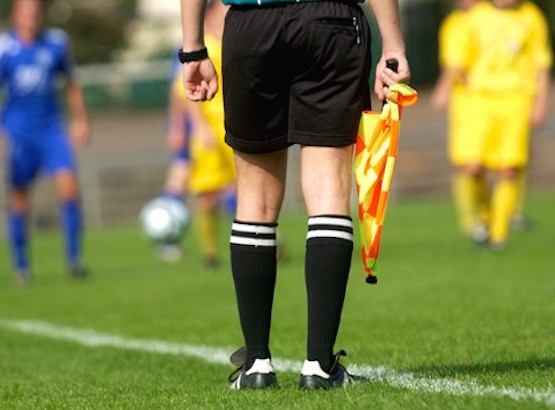
Diane Scavuzzo: What traits does a female referee need to survive and thrive?
Rosalie Kramm: As well as knowing the laws of the game and being physically fit, a female referee needs to have a strong sense of self and an understanding that people who judge them poorly because they are female are ignorant and most likely will fail somehow in their own lives. Those people have a problem, and it has nothing to do with you.
Diane Scavuzzo: You tell the story of submerging your feminity. Why did you feel that was necessary and how did you do it?
Because I had no role models or anyone I could really talk to — I taught myself to be, in my mind, “non-sexual.”
I defined being non-sexual as not being a girl or boy, but just being a person. This helped me filter out a lot of the crude comments coming from the sidelines.
Diane Scavuzzo: What needs to change so that more female referees can make it?
Rosalie Kramm: Coaches and parents need to be disciplined for bad behavior by leagues and clubs.
There should be zero tolerance for abuse, physical and verbal, towards referees.
If someone disagrees with a call, they think there was an offside, or the throw-in was given to the wrong team, that is one thing — but when coaches and parents start personalizing attacks and threaten referees, they should be disciplined and or ejected.
I believe the Cal South Referees Association has an outstanding program and support their female referees incredibly well. I am in a position of College Advocate for the young referees. When they are thinking about college, making career choices, need a resume looked over, I have the opportunity to help them.
Having mentors such as Kelly Mock and George Noujaim is priceless, someone to go to the field and assess the referee’s performance, and encourage the women to be strong and let them know they are doing a great job.
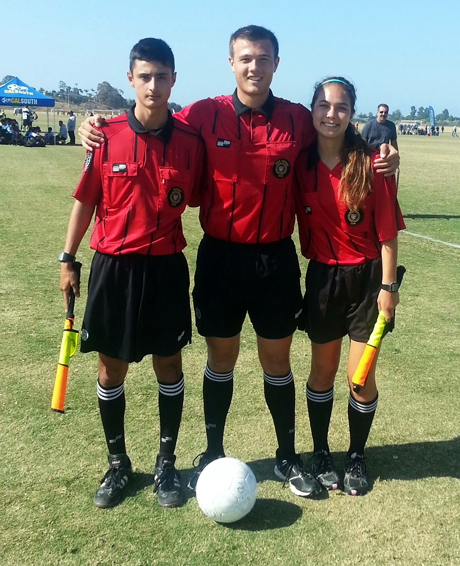
Diane Scavuzzo: What can be done to encourage more girls to dream big — and to perhaps make a life in the soccer world?
Rosalie Kramm: Giving permission for girls to dream big by their parents, teachers, and coaches is huge.
One of my tricks when I was young is I would pick out someone I wanted to be like and try to emulate them. I would watch how they dress, how they spoke, where they went, what they read, and even if that person never knew it, I would pretend I was like them.
If there is a young girl out there in the world of soccer — or any world — that stands out because she is obviously trying to really do a good job, is curious, asking questions, and wants to succeed — give that girl time and energy. Let her know you are watching and offer your time if she wants to get advice or think things through.
Diane Scavuzzo: What do you think is the most important life lesson that you’ve learned so far?
Rosalie Kramm: One of the most important lessons I have learned so far in life is to trust being myself.
I was super shy and quiet during grade school, scared of not being good enough.
Then one day during my freshman year, running with my cross country team, I grabbed a banana leaf off a tree, pretended it was an Olympic flag, started humming the Olympic song, and jumped in front of all the runners. They thought it was hilarious and fun. Once I let go of the habit of trying to be cool enough, smart enough, and popular, the world opened up.
To this day I try to not worry about what others think. I have learned almost everyone of all ages have the same insecurities.

Diane Scavuzzo: Why should someone become a referee?
Rosalie Kramm: Kids should become referees to learn leadership skills, be a part of the game if you are not a player/coach, because it is fun. I love refereeing a high school game on a weekday afternoon, running, getting exercise, watching talented, skilled players, controlling play.
It really is fun to referee.
Diane Scavuzzo: Can you tell us about the first time you remember yelling at a parent on the sideline?
Rosalie Kramm: The first time I red carded a coach was for an U6 game in La Mesa. The coach was so mad he threw down his clipboard, and it broke apart. I was only 14 years old. I remember I was mad at his constant berating and yelling at my every call. So I stopped the game and told him to sit in his car. He refused. I said, “This game is over unless you get in the car.” It was a standoff.
Finally, he went to his car and a parent took over as coach. I remember going to the field the following week, knowing I would see that coach again. I was really scared and praying for rain, but the game went forward as scheduled. I had to go over to him to get the player cards. I walked up to him in a very matter of fact manner, asked for the cards, shook his hand, and walked away. I would not give him a smile or let him know I felt any fear.
Diane Scavuzzo: Were you ever afraid a parent or player was going to hurt you physically?
Rosalie Kramm: I was threatened quite a few times with physical violence at a couple of high school games and college. My dad taught me to always park my car at the edge of the parking lot with my car parked so it could get out fast and to always check for broken glass under my tires when leaving.
Another trick a female referee taught me a couple of weeks ago is to fumble around with your keys near the driver’s door of someone else’s car in the parking lot when arriving at a game so people don’t realize which car is yours.
I had to walk a male referee to his car at a college game at Southwestern College once because the fact I was a female, the angry mob wouldn’t hit me. I never ran, but always stood up to anyone that physically threatened me. They might make a fist and yell, but I was never struck.
I think being a female actually was helpful in that circumstance.
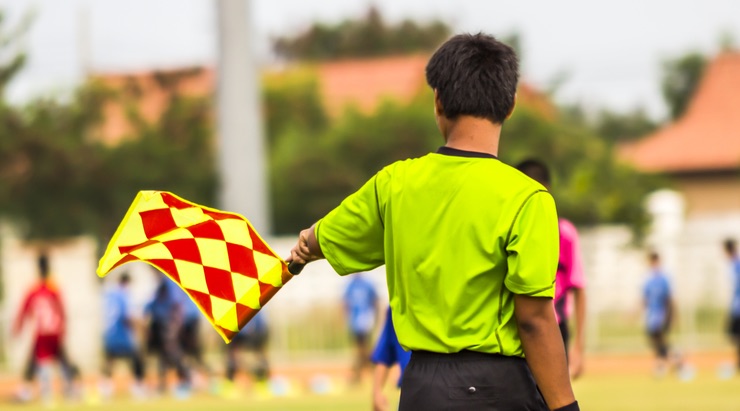
Diane Scavuzzo: Did you ever make a ‘bad call’ as a referee? How do you recommend a ref deal with making a mistake?
Rosalie Kramm: Every referee makes a bad call. You are allowed to change the call as long as the ball has not been put back into play.
My father taught me to talk, explain calls, why I was making a call. For example, for an indirect free kick, I would say out loud, “Dangerous play, indirect free kick.”
Diane Scavuzzo: How do you recommend a ref deal with making a mistake?
Rosalie Kramm: I think communication can be an effective tool to cool down players and coaches if they understand why a call was made. And if there is a mistake, they are more forgiving if they can see you are really working hard to get it right.
Diane Scavuzzo: In youth soccer today, are we too focused on winning vs development?
Rosalie Kramm: Soccer is the most fun, exciting, wonderful sport on the planet, in my opinion. I still play with sheer joy. Watching the great super stars play with incredible speed, technical magic, and flowing as a team is exciting.
At my soccer school, The Futbol Factory, I have the opportunity to watch kids enjoy learning to become technically proficient and confident.
It makes me incredibly sad to watch youth games when the coaches and parents are yelling at the kids, yelling at the referees, and are yelling at each other.
I watch kids freeze, not knowing what to do next. They are not allowed to use their own ideas and instincts without getting yelled at.
How can players be having any fun when they are worried about being yelled at?
There is a lot of anger at youth soccer games. Winning is more important than playing and feeling joy.
I was watching a U10 rec. game earlier this year. The coach was yelling at the referee, “Black ball,” when it was obviously white ball. He consistently tried to “play” the referee. I asked him in a loud voice, “Is your goal to teach these kids to lie?” Then he told the parents, “This referee is obviously against our team.”
I answered in a loud voice, “I can assure you this 17 year old referee does not care who you are or anything about your team. He is just trying to do his job.”
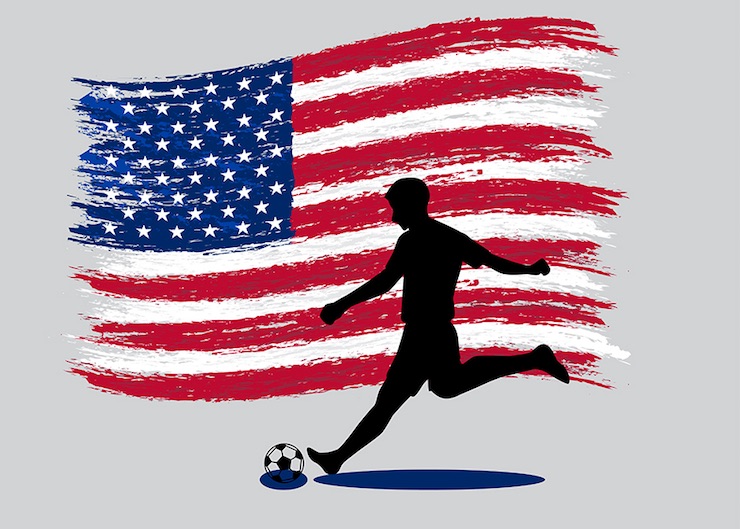 Anti-bullying has become a huge topic at schools, in the workplace, and in social media.
Anti-bullying has become a huge topic at schools, in the workplace, and in social media.
Yet, every weekend, the worst bullying imaginable goes on at soccer fields, and everyone looks at it as the norm and part of the game.
It is great that kids have the opportunity to learn from great coaches, become physically and mentally strong, and learn technical skills, but something happens when the referee blows their whistle.
I believe youth soccer is broken and can be fixed, but people need to step back and understand their words and behavior has long-term consequences for the youth soccer players in our country.






